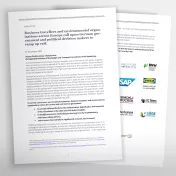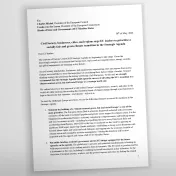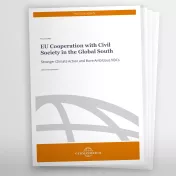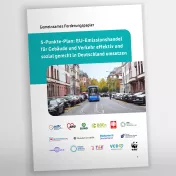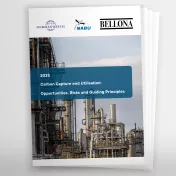EU climate policy and carbon pricing
Germany and the EU are currently not doing enough to contribute an adequate share to climate protection that could prevent dangerous climate change. Additionally, they are not cooperating sufficiently with other countries on climate protection and adaptation. Germanwatch calls for action at the national and EU level and actively supports these efforts.




